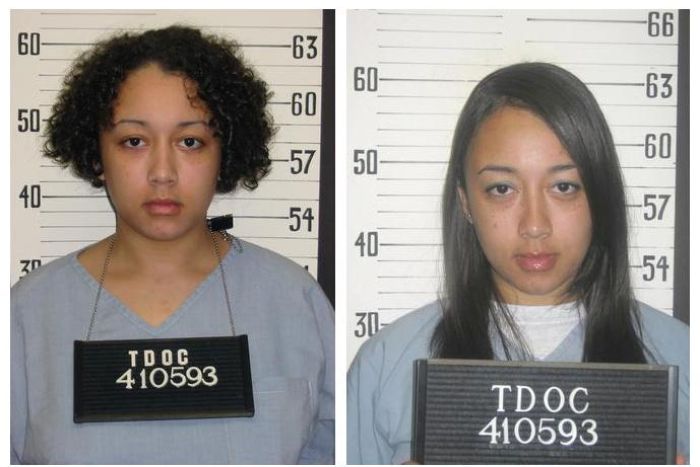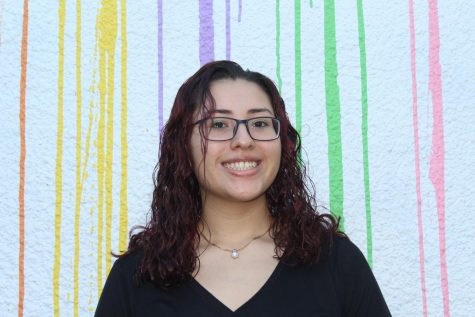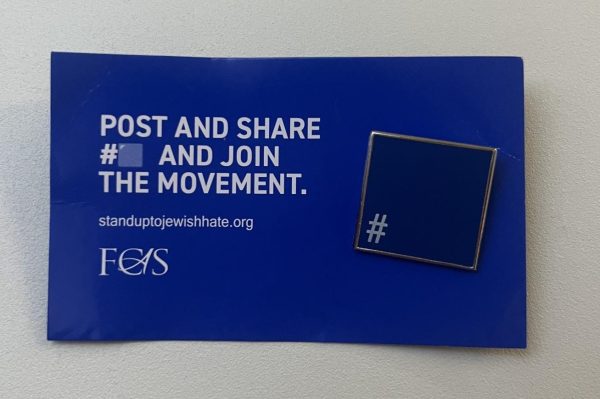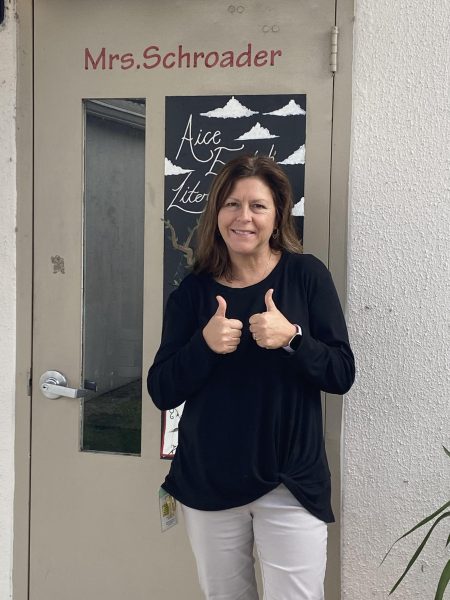Freeing Cyntonia Brown
Tennessee Department Of Corrections
Brown in 2006 on Left Brown in 2013 on Right
January 14, 2019
After 15 years in prison, Cyntoia Brown received clemency from Tennessee governor set her free. She was sentenced to life in prison after killing a man she thought was about to shoot her. She was 16 years old, homeless, and a prostitute at the time. But over the last 15 years, a documentary and celebrity support from Rhianna and Kim Kardashian pushed Brown’s case into the spotlight.
Cyntoia Brown, had been given up for adoption by her biological mother, Georgina Mitchell, when she was two years old. Brown was born with fetal alcohol syndrome disorder after Mitchell continued consuming alcohol during her pregnancy. Her mother began using crack cocaine when Brown was only eight months old, which resulted in Brown being given up for adoption. By the time she became a teen, Brown had become a runaway.
At 16, Brown’s teen years included countless rapes, and assaults during or before being raped, and the influence of drugs. Brown had a physically and sexually abusive pimp named “Kut-throat” who forced her into prostitution. On one occasion Brown was picked up by a 43-year-old real estate agent, Johnny Allen, and taken to his house. Brown stated that for several weeks leading up to that day, she had been repeatedly raped and was under the influence of many drugs. Upon arriving at Allen’s house, she saw that he owned several guns. Brown said that all the weapons made her grow fearful of the possibility of being shot, which ultimately led her to shoot and kill the man.
Even though Brown was being exploited and claimed she was defending her life from Allen, in August 2006 a jury convicted Brown of first degree murder and robbery. Two months later, Brown was sentenced to life with the possibility of parole. But during her sentencing, officials said the law required that she serve at least 51 years before becoming eligible for release. At the time, it seemed as if officials wanted to bury Brown deeper and deeper into the prison system.
Five years after her conviction, PBS released a documentary, “Me Facing Life: Cyntoia’s Story” which aired nationally and brought a huge amount of attention to Brown’s story.
A year later, the U.S Supreme Court ruled that mandatory life sentences without parole for juveniles violated the Eighth Amendment against cruel and unusual punishment. Defense attorneys push for a new trial as new evidence regarding Brown’s mental health arose.
In November 2017, the hashtag #FREECYNTOIABROWN began to circulate social media after celebrities such as Rihanna posted it.
In June 2018, the 6th Circuit Court of Appeals heard arguments on whether Brown’s life sentence was constitutional. Brown’s lawyers said state sentencing laws conflicted, making it unclear if Brown would be required to serve 51 years of life without parole. The panel of judges agreed Tennessee’s sentencing laws were confusing and contradictory. Furthermore, in July Gov. Bill Haslam received a copy of the parole board’s report, which was thousands of pages in length.
In August 2018, the 6th Circuit Court of Appeals asked the Tennessee Supreme Court to clarify the state’s seemingly contradictory sentencing laws. The Tennessee Supreme Court responded with an unanimous decision that basically said if someone was convicted after July 1, 1995 for first-degree murder, then they MUST serve a minimum of 51 years before becoming eligible for release.
In January 2019, Cyntoia Brown finally saw some light. Tennessee Gov. Bill Haslam granted Brown’s request for clemency, which makes her eligible for release later this year, possibly August.
After news regarding the clemency was released people all over social media commented on it. Some people criticized the Governors decision by calling it stupid and saying that a murderer should not be released. Others were extremely happy given that at the time of the event, Brown was under so much pressure from her pimp, under the influence of drugs and was only 16 years old.
Many supporters have raised money to help Brown with expenses after she gets released. Supporters are up to $500,000.
“I am thankful for all of the support, prayers and encouragement I have received,” Brown, now 30, said in a written statement after the governor’s decision.
“We truly serve a God of second chances and new beginnings. The Lord has held my hand this whole time, and I would never have made it without him. Let today be a testament to his saving grace … thank you to Dr. Richard Goode and to Dr. Kate Watkins and all of you at Lipscomb University for opening up a whole new world to me … I have one course left to finish my bachelor’s degree, which I will complete in May 2019.” said Brown, who in prison has earned not only her GED certificate but also an associate’s degree.
National Human Trafficking Hotline: 1 (888) 373-7888
`












